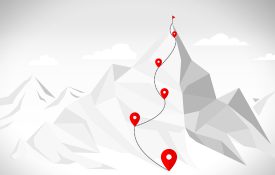-
The Kids (Who Use Tech) Seem to Be All Right
Social media is linked to depression—or not. First-person shooter video games are good for cognition—or they encourage violence. Young people are either more connected—or more isolated than ever. Such are the conflicting messages about the effects of technology on children’s well-being. Negative findings receive far more attention and have fueled panic among parents and educators. This state of affairs reflects a heated debate among scientists. Studies showing statistically significant negative effects are followed by others revealing positive effects or none at all—sometimes using the same data set.
-
6 ways parents can help kids strike a balance between screen time and the real world
When it comes to kids and screens, it often feels as though parents are wearing headphones with conflicting messages piped into each ear. On one side: a steady drumbeat of increasingly dire warnings about game addictions and the developmental consequences of letting kids spend too much time on devices. On the other side: the powerful siren song of phones, laptops, tablets and video games. Our kids are constantly nagging us for access — more time for playing games, doing homework, catching up with friends or watching endless hours of YouTube. As with everything, it’s up to parents to find balance.
-
Can Big Science Be Too Big?
Modern science is largely a team sport, and over the past few decades the makeup of those teams has shifted, from small groups of collaborators to ever larger consortiums, with rosters far longer than that of the New England Patriots. Answering big questions often requires scientists and institutions to pool resources and data, whether the research involves detecting gravitational waves in deep space, or sorting out the genetics of brain development. But that shift has prompted scientists to examine the relative merits of small groups versus large ones. Is supersizing research projects the most efficient way to advance knowledge? What is gained and what, if anything, is lost?
-

Effective Self-Control Strategies Involve Much More Than Willpower, Research Shows
Leading behavioral scientists propose a new framework that outlines four types of self-control strategies.
-

How Smartphones Are Affecting Our Relationships
The allure of smartphones, and their impact on our relationships, might be the result of our evolutionary history, researchers suggest.
-
A Psychologist Explains Why 2018 Felt Like the Longest Year Ever
You might think that a year as chock full of newsworthy events as 2018 would feel like it blazed by in a flash. Yet for many of us, January feels like it was eons ago. So did 2018 fly by, or did it drag on? The answer is, strangely, both. Humans have a complicated relationship with time. Unlike physical matter and energy, we have no organ that directly detects time. Instead, our brains judge time indirectly, mostly through two processes—attention and memory. When we think about how time is currently progressing, time judgments are based primarily on attention.

